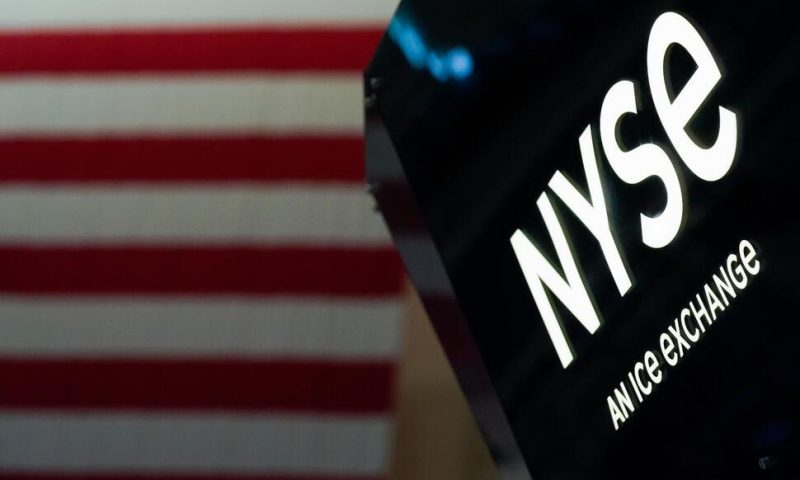Stocks are opening lower again on Wall Street, continuing a weak patch that has wiped out much of the gains the market made in July and early August.
Stocks are lower on Wall Street in morning trading Thursday, extending their losing streak to a fifth day as investors remain wary of how the economy will hold up as the Federal Reserve ratchets up interest rates to fight inflation.
The S&P 500 was down 1% as of 10:11 a.m. Eastern. The Dow Jones Industrial Average fell 230 points, or 0.7%, to 31,285 and the Nasdaq composite slid 1.4%.
The major indexes have closed lower four days in a row. The latest wave of selling continues a weak patch that has wiped out much of the gains the market made in July and early August.
Technology stocks were once again the heaviest weight on the market. Nvidia dropped 8.3% after the chipmaker said the U.S. government imposed new licensing requirements on its sales to China.
Banks also lost ground. Energy stocks fell along with the price of U.S. crude oil, which is coming off its third month of declines. Those losses overshadowed modest gains in communication stocks.
Smaller company stocks also fell, pulling the Russell 2000 index 1.7% lower. In Europe, major stock indexes were broadly lower, while markets in Asia closed lower.
Treasury yields were broadly higher. The yield on the 10-year Treasury, which influences interest rates on mortgages and other consumer loans, rose to 3.26% from 3.20% late Wednesday. The two-year Treasury yield, which tends to track expectations for Fed action, rose to 3.52% from 3.50%.
Bond yields have been rising along with expectations for higher interest rates, which the Federal Reserve has been increasing in a bid to squash the highest inflation in decades.
Markets have been on a losing streak since last week, when Federal Reserve Chairman Jerome Powell indicated that the central bank will likely need to keep interest rates high enough to slow the economy “for some time” in order to bring inflation down.
The Fed has already raised interest rates four times this year and is expected to raise short-term rates by another 0.75 percentage points at its next meeting later this month, according to CME Group.
Wall Street is worried that the Fed could hit the brakes too hard on an already slowing economy and veer it into a recession. Higher interest rates also hurt investment prices, especially for pricier stocks like technology companies.
The S&P 500 ended August with a 4.2% loss after surging 9.1% in July on optimism that the Fed might be able to ease back on raising rates following signs that inflation, while still high, was leveling off. The July and early August market rally marked a brief positive turn for Wall Street after a weak first half of the year where the S&P 500 dropped 20% from its most recent high and entered a bear market.
Investors have been closely watching economic data for any additional signs that the economy is slowing down or that inflation may be cooling or at least holding at its current level. Businesses and consumers have been hit hard by rising prices on everything from food to clothing, but recent declines in gasoline prices have provided some relief.
Strong U.S. employment data have helped fuel expectations of more interest rate hikes. The Labor Department reported Tuesday there were two jobs for every unemployed person in July, giving ammunition to Fed officials who argue the economy can tolerate more rate hikes to tame inflation that is at multi-decade highs.
On Thursday, the Labor Department said applications for unemployment benefits fell last week, the latest sign the job market continues to shine despite a slowing U.S. economy.
The government’s August jobs report, due out Friday, is also expected to show the job market remains robust.

